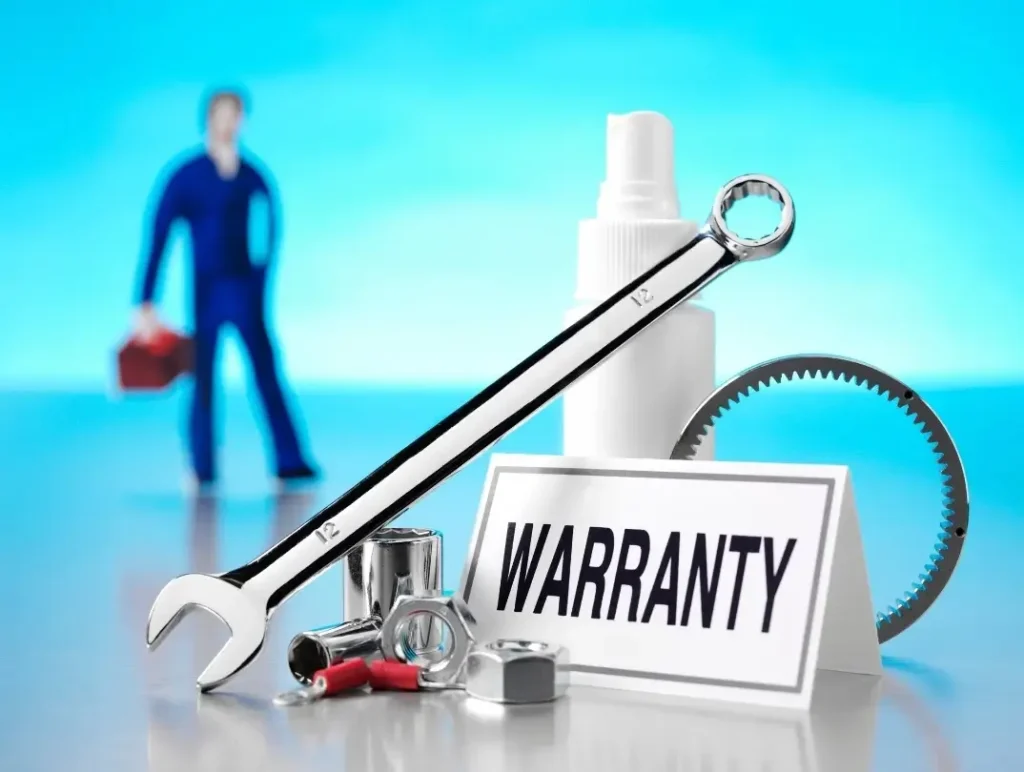It’s the painful truth of the RV life: out on the road, anything can happen.
Insurance… roadside assistance… emergency toolkits… We pack these things in preparation for precisely those disasters.
And that’s why you NEED to get the best RV extended warranty plan you can.
RV insurance policies cover unforeseen emergencies. Roadside assistance gets you back on the road when the wheels come off. But it’s your RV’s warranty plan that covers your gear and mechanicals from the ongoing wear, tear, and worse of road-life.
But reading through warranty policies is a bore. Worse yet, fine print, and fee breakdowns… These things are intentionally designed for subterfuge.
So we’ve done the work for you! We’ve cut through the headache so you can get to the answer quick.
Below, you’ll find the 3 BEST RV extended warranty companies and plans. Realistically, you can’t go wrong with any of them.
But a good deal is still the deal that’s right for YOU. So let’s dive in, decode these services, and get your home covered in full.
So you can get back to the fun stuff. 😉
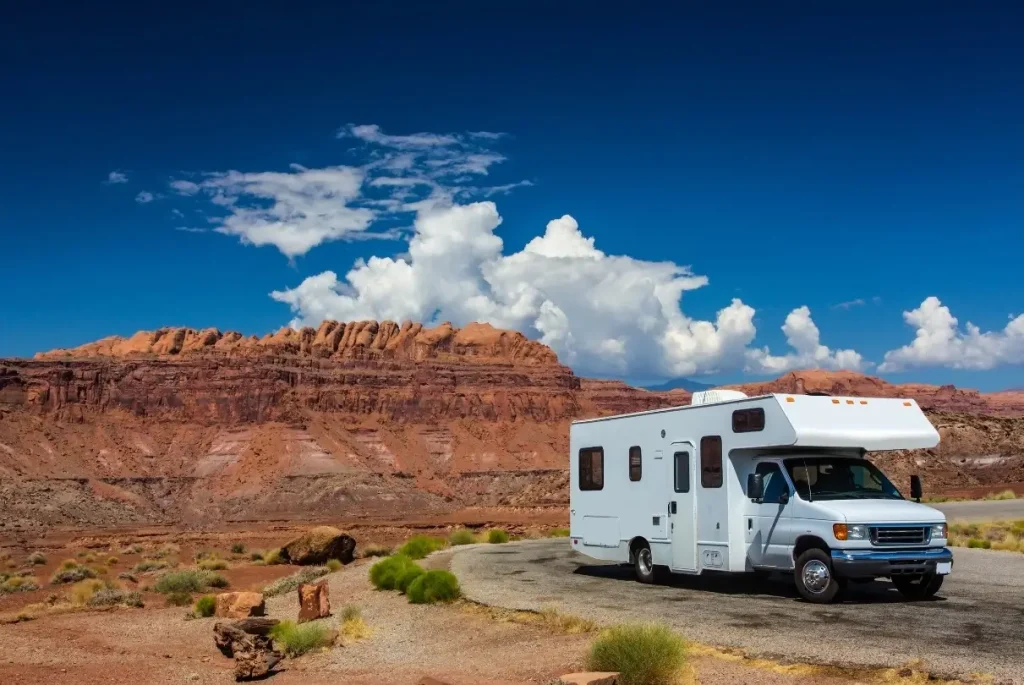
The Best Extended Warranties for RVs: Our Top 3 Picks
- Best Overall: Good Sam Extended Service Plan → Jump to Review
- Most Comprehensive Coverage: America’s RV Warranty → Jump to Review
- Best Budget Plan: RVing Solutions → Jump to Review
How We Choose the Best Warranty Companies
First things first… How do we, in the business of RVing properly, differentiate between a crummy RV warranty provider and a reputable company?
Nobody likes getting burned by a bad policy. Nobody likes paying unreasonable service fees. Or finding out that the extensive coverage they paid for isn’t so extensive after all.
Much like sifting through the finer points of RV internet options and plans, it’s a drag to manage. So we’ve done the heavy lifting for you!
Before we get to the policy reviews, let’s have a look at our selection criteria. These are the factors we’ve considered when dissecting the real-life reports and rotten legalese. These are the factors that define the RV warranty companies that offer real value—not just empty promises.
Policy Transparency
Let’s be honest—extended warranties are NOT light-reading material. These contracts can be dense. Truth be told, a lot of warranty companies use that to their advantage.
In this review, we’ve prioritized providers that lay everything out simply. No hidden clauses; no gotcha fees; no nasty surprises when it comes time to make a claim.

A good warranty for RVers shouldn’t require a law degree and legal-eagle vision to understand. The best RV warranties offer clear, straight-up definitions of what’s covered and what’s not. They have reasonable service fees, a long list of satisfied customers, and don’t play games with exclusions.
If a company buries crucial details in jargon-filled fine print, it’s a hard pass from us.
Claims Processes
When your RV breaks down, you don’t want to be stuck in a bureaucratic black hole trying to get your claim approved. Especially considering it’s your home.
Some companies offering extended warranties for RVs drag their feet and make you jump through endless hoops. Other warranty companies process claims quickly and efficiently.
We focus on the latter. Companies that have a simple, well-documented claims process are the picks of the litter! Ideally, if they have…
- Online claim submissions…
- 24/7 customer support…
- And allow direct payments to repair facilities (so you’re not paying out of pocket and waiting for reimbursement)…
…then that’s the gold standard! (Or, at least, it should be.)
Solid RV coverage should reduce stress, not add to it. If the claims process is a bummer, then it’s a no-go.
Coverage Options and Repair Costs
Not all extended warranties are created equal. Some will only cover the absolute essentials and major repairs, e.g. the engine or drivetrain. Others will include a wider scope of RV-tailored coverage:
- Appliances, like your RV’s various fixtures.
- Plumbing, so your RV’s water system.
- Electronics and electrical systems, e.g. your RV’s on-board battery or solar setup.
- Or even cosmetic repairs, in case of mishaps.
Our review has prioritized companies with flexible RV coverage plans. If you want budget essentials only, that’s an option. Alternatively, you can go for the more extensive plans. Choose based on your needs.
Moreover, we’ve taken labor costs into account. RV repairs require repair facilities and labor. Our reviews also factor these in when examining the final value of an extended warranty plan.
Customer Service
No shoddy customer service! Ever tried to get in touch with customer service, only to feel like you’re talking to a robot? (Or an actual robot?) Not with our choices!

The best RV extended warranty providers have knowledgeable reps who actually understand the nuances of recreational vehicles. We seek out warranty companies who utilize genuine expertise—not just generic call center agents reading from a script.
Companies with satisfied customer reviews, responsive support teams, and fair resolutions for disputes are our go-to. Plus, we dish out bonus points if they have a dedicated RV claims team rather than lumping RVers in with car owners. Sensational service sells!
Additional Benefits
A solid extended warranty should go beyond just fixing your rig. Whether it’s optional coverages or extra perks, less isn’t always more. In the case of RV warranties, more is more!
The best warranty plans will give you things like:
- Roadside assistance
- Trip interruption coverage and travel expense reimbursements
- Rental car reimbursement
- Discounts on maintenance services
- Etcetera
While an absence of perks isn’t always a deal-breaker, the bonuses add major value to your plan. Some providers also offer bundled deals with RV insurance and other essential services. This saves you money in the long run.
The warranty providers we’ve selected maximize bang for your buck. Coverage is good, but so is value. Let’s not just get you a piece of paper better off used as RV toilet paper.
Let’s get you real, tangible benefits.

The 3 Best RV Extended Warranty Plans
Let’s talk benefits, baby! There’s no point scoring yourself a crispy clean motorhome from one of the leading RV manufacturing brands only to not protect it.
There’s no one-size-fits-all when it comes to RV warranties. The best extended warranties for RVers depend on individual needs, rigs, and budgets
Ultimately, to find the best fit, you’ll need to get a personalized quote. Pricing varies based on your RV’s age, mileage, and your desired coverage level. But nonetheless, there are some clear leaders of the pack.
Let’s break it down before you break down! Starting with provider numero uno…
Best Overall
1. Good Sam Extended Service Plan
- Repair Flexibility: Any US/CAN licensed shop (including mobile mechanics)
- Deductibles: $100 / $250 / $500 (Motorhomes) | $100 / $200 / $300 ($100-$500 per repair)
- Transferable: Yes
- Cancellation Policy: Prorated refunds per individual contract
Taking the top spot is Good Sam: the good Samaritan of the RV community!
Good Sam’s Extended Service Plan (ESP) functions similarly to mechanical breakdown insurance coverage. It does not supersede your RV’s manufacturer’s warranty. But once the manufacturer warranty period runs out, Good Sam’s ESP kicks in and covers everything it did. (Provided it falls under the umbrella of a ‘mechanical breakdown’.)
The coverage is well-balanced and flexible relative to the pricing. Moreover, Good Sam offers a relatively straightforward claims process. Unauthorized repairs will need to be paid for out of pocket before seeking reimbursement. However, if you want to avoid nasty surprises, you can pre-authorize repairs, have Good Sam pay the repair facility directly, and just handle the deductible yourself.
Coverage is renewable annually up to a whopping total of 20 years, depending on your RV’s age and mileage. As such, this plan is an excellent option for long-term travelers. Plus, there are oodles of extra optional coverages! (For example, tire protection.)
You’ll also usually get a membership with the Good Sam RV Club discounted with the ESP. This ups the extras even more as membership includes discounts on rental cars, hotels, RV accommodation, auto services, and a whole host of other goodies. In fact, we also ranked Good Sam as our best RV club membership!
It’s not a perfect system. This extended service plan isn’t the cheapest you’ll find on the market. Plus there are a few quirks to consider. For example, you pay a deductible on repairs per facility visit, not per repair.
However, no plan is perfect. And cheaper plans generally come with a heck of a lot more hidden quirks than that. Ultimately, Good Sam has been offering services to the RVing community for nearly 60 years. You’re not just paying for strong coverage and hassle-free claims: you’re paying for one of the most glowing reputations in the entire industry.
Most Comprehensive Coverage
2. America’s RV Warranty
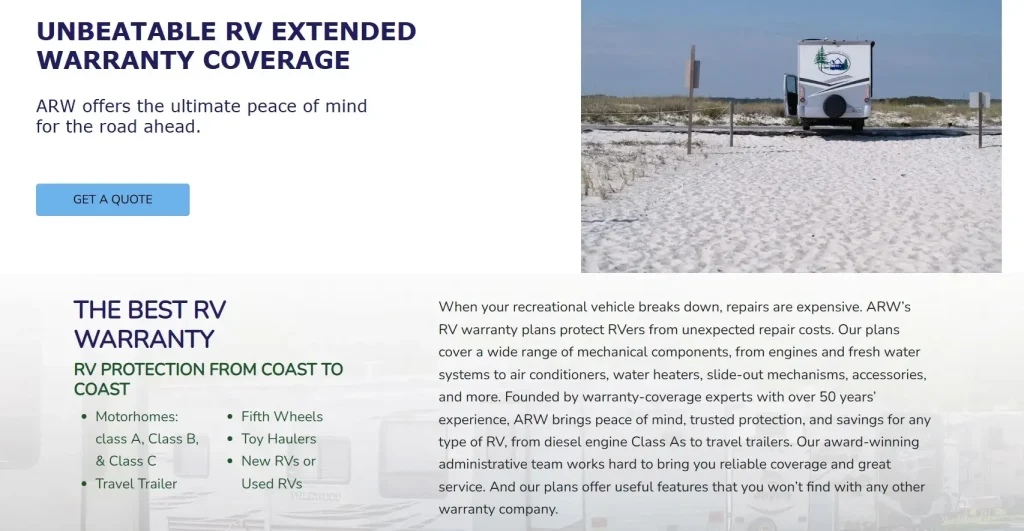
- Repair Flexibility: Any US/CAN licensed shop (including mobile mechanics)
- Deductibles: $100 / $250 / $500 / $1,000
- Transferable: Yes
- Cancellation Policy: Prorated refunds; contract terms vary
For premium-level, full-coverage protection, America’s RV Warranty (ARW) stands out as one of the most extensive warranties available. Functioning as an extended service plan, ARW ups the ante over most providers. Not simply content with pure mechanical coverage, their extended RV warranty service also covers the coach elements of your motorhome.
More specifically, with ARW, you get four tiers of services:
- Basic Coverage: Focusing on the RV’s automotive features.
- Plus Coverage: Which includes automotive features plus certain coach components.
- Total Coverage: Offering comprehensive protection for major systems and appliances.
- Complete Coverage: An exclusionary policy encompassing nearly all motorhome components, except those explicitly excluded. This usually includes things like heating and cooling systems, high-end RV refrigeration units, or even built-in audio-visual gear.
In addition, ARW also covers parts at full MSRP (rather than depreciated values). This ensures RV owners get the best replacement components available when receiving repairs.
Term lengths are customizable, provided your RV qualifies. Coverage is available for any recreational vehicle up to 20 years old, including both motorhomes and towables such as travel trailers. (Although towables are capped at 15 years old.)
The downside is that for the most comprehensive coverage, you will be paying a serious premium. Additionally, ARW is a young company, having only been around since 2019. They simply don’t have the esteemed history of a provider like Good Sam.
But the history they do have checks out! Complete with tiers for customer flexibility and coverage out the wazoo, ARW is a wholesale warranty that actually covers your whole RV. For those who want to pay more to stress less, this is the provider to pick.
Best Budget Plan
3. RVing Solutions
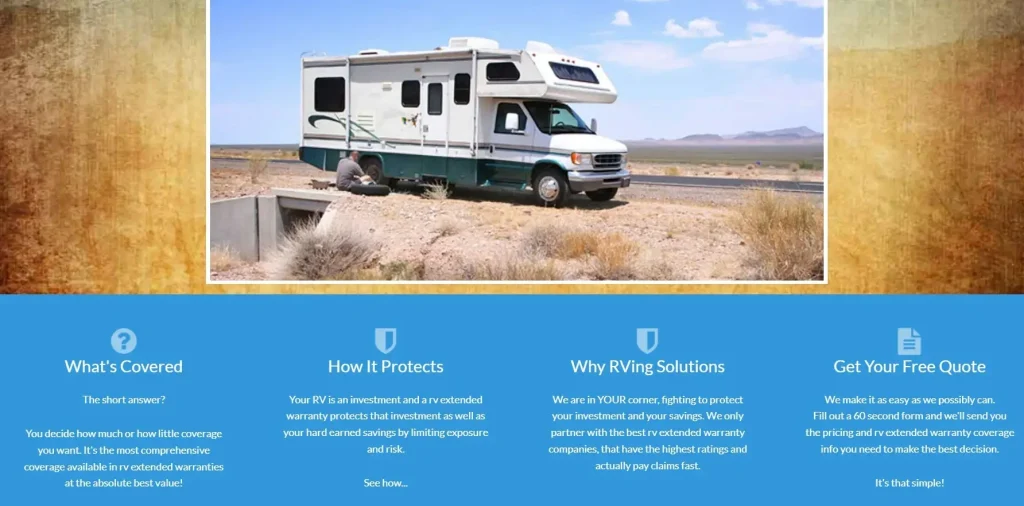
- Repair Flexibility: Any US/CAN licensed shop (including mobile mechanics)
- Deductibles: $50 / $100 / $200
- Transferable: Yes
- Cancellation Policy: Prorated refunds (typically based on the time or mileage used)
But many RV owners don’t need the full kit and kaboodle. Sometimes, paying less is the way to go! For those RV owners, RVing Solutions provides a top-notch budget choice: all-essential coverage without unnecessary extras.
One of the biggest advantages of this extended warranty is the lower deductibles. While $100 and $200 deductibles are standard, you can go as low as $50 all without losing access to mobile mechanic coverage.
And while the coverage may not be as extensive as with other providers, there are still some delicious perks included with RVing Solutions. Specifically, both towing to service centers and travel expense coverage are available in a number of its plans—ideal for homes on the go.
Furthermore, RVing Solutions wipes the floor with most of the market when it comes to customer service. The Better Business Bureau has awarded the company an A+ rating for its customer commitment. Concierge services and 24/7 dedicated RV technical assistance are also available, meaning you can get troubleshooting and repair guidance anytime.
Now, the coverage is still not going to match other companies in the RV industry. America’s RV Warranty’s top-tier plans overall protect more of your motorhome’s components. Meanwhile, Good Sam arguably outranks RVing Solutions strictly in terms of streamlined, speedier claims processes.
But for qualifying RVers who want affordable, essential protection without major compromises, RVing Solutions is one of the best-value extended warranties on the market. It’s a solid pick for RVers who prefer cost efficiency over frills while still getting the reliability they deserve.
About RV Warranty Plans
As mentioned, not all RV coverage is created equally. Realistically, not even all RV repairs are created equally. Whether it’s a travel trailer or fifth-wheel or Class A or humble campervan, even all RVs aren’t created equal!
An RV is more than just a vehicle: it’s a home on wheels. It’s packed with mechanical systems, appliances, and electrical components that can (and will) break down over time. That’s where all these wholesale warranties and extended service contracts come in.
Put short, knowing what’s covered, how claims work, and what type of coverage you need is vital to making the right choice for your rig.
What Happens When You Have a Mechanical Breakdown?
Mechanical failures are inevitable in the RV life. So firstly, it’s important to note what a mechanical breakdown is, legally speaking.
More or less, mechanical breakdowns exclusively apply to a vehicle’s moving or mechanical components essential to its operation. Moreover, coverage generally only applies when failure results from unexpected defects or malfunctions. Warranty protections aren’t for neglect, external damage, or general wear and tear.
That’s why for more extensive coverage of your RV’s broader systems and living features, higher-tier plans need to be purchased However, even in the case of mechanical components alone, an RV’s extended warranty keeps you from footing a massive, unexpected bill.
As for the claims process, when a breakdown occurs, it typically goes something like:
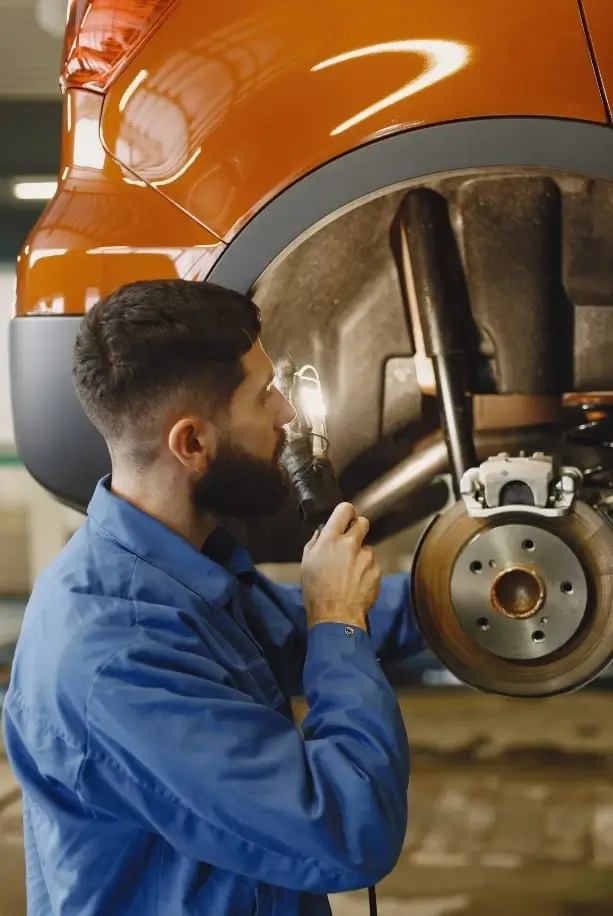
- Diagnose the issue at a licensed repair facility or service center.
- Contact your warranty provider for approval before actioning any repairs.
- The provider either then approves or denies the claim, based on the policy’s terms and the specifications of the repair.
- If approved, repairs are made. The warranty company then pays the shop directly (or reimburses you). However, if you haven’t acquired authorization, you are liable to be denied reimbursement or at least will face a more cumbersome administrative process to be reimbursed.
Every provider has different approval timelines, claim processes, and coverage limits. Additionally, some of the best extended RV warranties will cover labor costs, but a lot don’t.
So ensuring you have the best claims process AS WELL as coverage is crucial when selecting your provider and policy.
What’s the Difference Between an Extended Warranty and Service Contract?
The terms “warranty” and “service contract” are often used interchangeably. Even in this article, I’ve been guilty of throwing them around haphazardly. In practice, the difference is nuanced at best. However, they’re still ultimately not the same thing.
A warranty is typically provided by the manufacturer. It covers defects or failures in your RV’s materials and workmanship for a set warranty period—usually one to three years. It’s built into the cost of your RV and has no additional fees. However, relative to the lifespan of an RV, it expires quickly and won’t cover wear and tear or long-term mechanical failures.
A service contract (or “extended warranty”, as it often gets casually referred to) is a third-party protection plan. It kicks in after the manufacturer’s warranty expires, covering mechanical and electrical failures while usually excluding maintenance and cosmetic issues. Unlike factory warranties from manufacturers or RV dealers, service contracts require out-of-pocket premiums, deductibles, and exclusions.
So, do you need both? Look, it helps. Having both a manufacturer and extended warranty isn’t a necessity to live the RV life. But then, technically neither is a seatbelt. We still wear one all the same.
In the long-term, an extended warranty (or service contract) alongside some A-rated insurance is the best way to protect your rig against costly repairs.
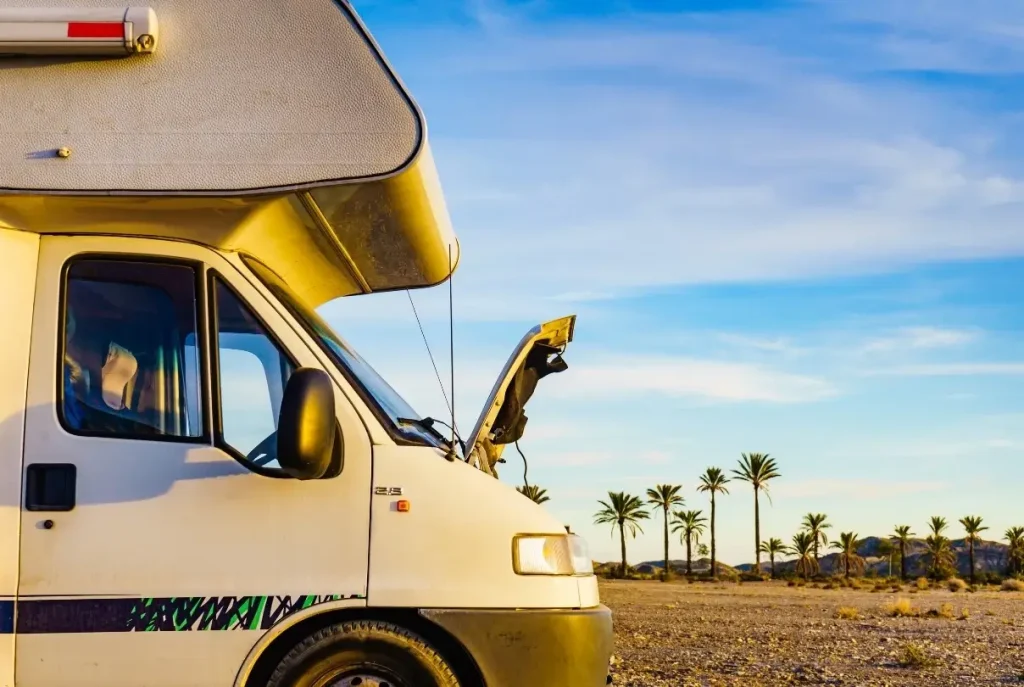
You do have the option of letting the factory warranty run out, taking a gamble for a bit, and then purchasing an extended warranty once you’re ready. However, be warned that might increase the price of your plan or change what your RV qualifies for.
Personally, I’d say if you’re dropping a five-to-six-figure digit on a top-of-the-line motorhome, it’s better to just not take any chances.
RV Warranty Coverage Details
Now, I’ve referred to standard coverages and optional coverages a lot. Not all RV extended warranties cover the same thing. Most will cover that core set of mechanical and electrical components that keep your rig running. However, even then, there are variations.
So for that reason, let’s look at what is and isn’t standardized. Knowing what RV repairs are available to you is just as important as the repair costs themselves!
That way, you’ll know a good deal when you’re looking at it.
Typically Covered Items
For typically covered items, most extended RV warranties focus on major mechanical and electrical systems. In particular, they prioritize components of an RV that are prone to failure over time.
Specific coverage varies by provider. That’s why, no matter what, it’s crucial to ALWAYS read the fine print! But things you’ll typically see covered by an RV’s extended warranty are:
- Engine and Transmission: Internal parts of the motor and mechanics (but usually excluding seals and gaskets).
- Drivetrain and Suspension: Axles, differentials, drive shafts, and various steering components.
- Electrical Systems: Wiring, fuses, circuit boards, and power converters.
- Plumbing and Water Systems: Pipes, built-in RV water pumps, and wastewater systems.
- Air Conditioning and Heating: RV air conditioning units and heating systems, provided they came pre-installed.
- Slide-Outs and Leveling Systems: Motors, tracks, and your RV’s hydraulic components.
Common Optional Coverages
Beyond the standard coverage, many extended warranty providers offer optional add-ons for extra peace of mind. Some of the most common include:
- Seal and Gasket Coverage: Protection for seals and gaskets is often extra.
- Tire and Wheel Protection: Tire add-ons cover damage from road hazards like potholes and debris.
- Appliances: All your various appliances, like fridges, stoves, microwaves, and sometimes even RV washer-dryer units, can be covered for extra.
- Electronics Coverage: As well as entertainment, audio-visual, and communications gear.
- Roof and Exterior Coverage: Protecting your RV’s roof and exterior will help prevent leaks, delamination, and structural damage.
- Consequential Damage Coverage: Covering damage caused by other breakdowns of your RV’s parts is also usually extra.
What About Roadside Assistance?
An RV’s extended warranty is great for breakdowns. Plus maybe those saucy extras. But when your rig won’t even make it to a service center for repairs, it pays to have comprehensive RV roadside assistance.

A roadside assistance plan covers emergency services like:
- Towing
- Battery jump-starts
- Fuel delivery
- Lockout services
- Flat tire changes
- And other in-a-pinch road trip-savers
While this is a separate service, there are extended warranty companies that also have roadside assistance services. (And some even function as insurance companies too!)
Not to glaze Good Sam, but once again, they’re one of the top choices in this regard. We personally ranked the Good Sam Roadside Assistance Plan as our favorite emergency RV service. So if you’re going with their extended service plan and maybe even their RV club membership, why not keep it in the Good Sam fam’!
Types of Warranties
Regarding dissecting coverage options, there are two main types of RV extended warranties:
- Exclusionary
- Named component.
The difference is fundamentally defined by how they define coverage. Both can cover a broad range of typical and optional coverages. However, one type tells you what’s not covered, while the other tells you exactly what is.
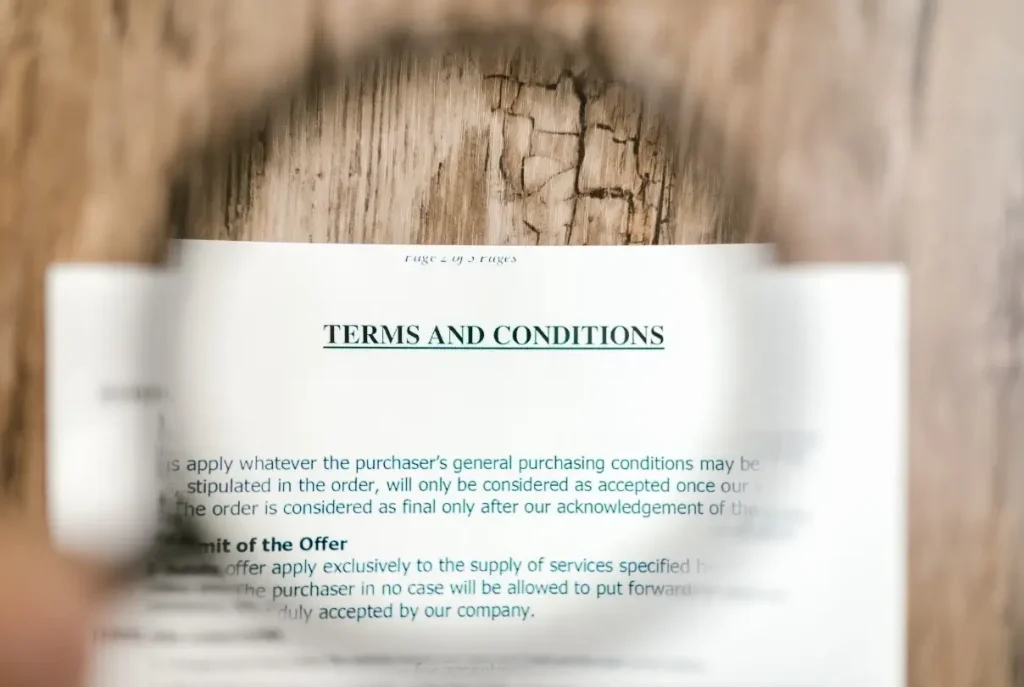
Understanding these distinctions will further help you navigate the jargon.
Exclusionary Coverage Warranties
An exclusionary warranty covers everything except what is explicitly listed as excluded. This means if a component isn’t named under the exclusions in your policy’s fine print, it’s covered!
Generally speaking, exclusionary coverage offers the most comprehensive protection at the highest price. You’ll find all the essentials and a lot of the optionals covered without needing to read through a long list.
However, read your contract well before you sign up. Exclusions vary from provider to provider, and it’s no fun signing up thinking you’re covered for something only to later find that exact component on the no-go list.
Named Component Warranties
A named component warranty only covers specific parts listed in the contract. I.e., anything not mentioned is not covered.
This type of warranty is usually more budget-friendly but requires careful review. You’ll be reading the contract for both the essentials plus any optionals.
Overall, this type of RV warranty is a better approach for many as what you see is what you get! It’s basic and budget-friendly protection provided you know what you’re getting into.
How to Find the Best Extended RV Warranty for You
So between all these types, levels of coverage, and various providers, how do you know what the best extended warranty is for your RV?
Well, it all comes down to assessing the factors that align with YOUR needs. Not all RV extended warranties are created equal, but neither are all RVers:
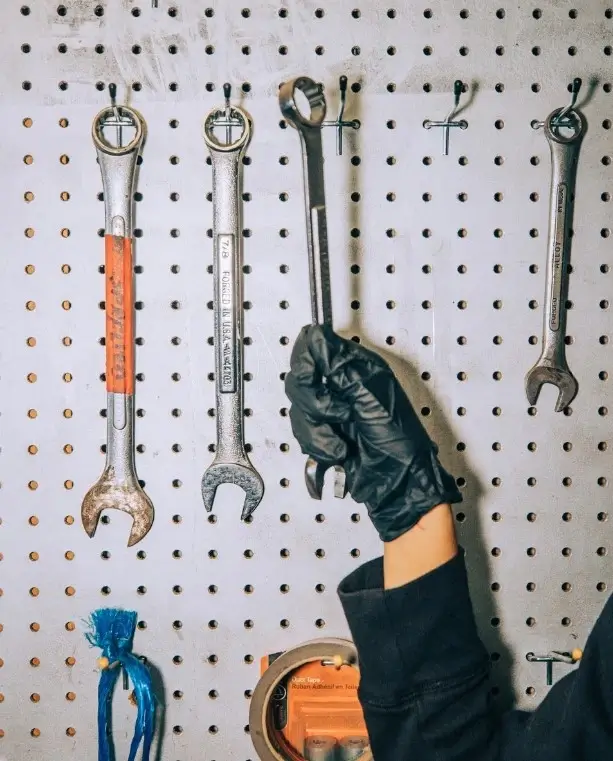
- Determine Your Coverage Needs: Full-timer, weekend warrior, cheap camper, lord of the vansion—whatever your style is, get the plan to match. I, for one, tend to lean budget and second-hand, DIY repair jobs, and run things into the ground. For my style, top-tier exclusionary coverage never made much sense.
- Consider Your RV Types: There are a lot of classes and categories of RVs! As you noticed in the reviews, warranty companies tend to provide different services for motorhomes versus towable RVs like travel trailers. Make sure you check how the plan you’re considering interacts with you’re specific type of recreational vehicle.
- Know Your Budget: And keep it in budget! A warranty is an investment in peace of mind, but one that comes at a premium. RV life is all about weighing up immediate costs (insurance, gear, warranties) against ongoing ones (travel expenditures, maintenance and repairs, and everything else).
- Compare Companies: Lastly, shop around. If you’ve come this far in our guide, you’re on the right track! But the best tip is to communicate directly with several providers to get a personalized quote for warranty coverage, and then request sample contracts from all of them to take home and dissect.
Our Verdict: What’s the Best RV Extended Warranty to Buy?
Of course, if you’re feeling a bit lost by all that, you can just go with our top recommended warranty plan. For value, well-rounded coverage, and a provider that understands the nuances of the RV lifestyle…
The Good Sam Extended Service Plan sweeps the competition! It’s not that the others don’t also provide serious value. But 60-odd years of serving the RV community is no joke, and Good Sam ain’t laughing.
Whatever you do though, protect your mobile abode! Whether it’s a humble campervan, majestic coach, or towed travel trailer following behind, it matters.
Wholesale warranties and extended service contracts might feel more optional than roadside assistance or a top-rated insurance company policy. However, ultimately, they’re not.
There is a lot that goes into an RV. There are a lot of moving parts and pieces to understand. Much like boatlife, there is always something that is breaking, something to be fixed, and something to be scratched off the to-do list.
So if your RV qualifies for a wholesale warranty (i.e., it’s not 20+ years old with three continents’ worth of mileage), up your protection! You might not ever need it, and that’s great! It’s wonderful when things DON’T break down.
But think about your rig’s long-term health. Think about holding your RV’s value for resale later on. I mean, dayum, just think about the adventures that are still to come!
When you’re deep in month three of the expedition and very far from what you know, it pays to have a little support. And if you’re engine conks out or electricals die, you’ll be grateful you got the best RV extended warranty you could.
After all, we only get by with a little help from our friends.
